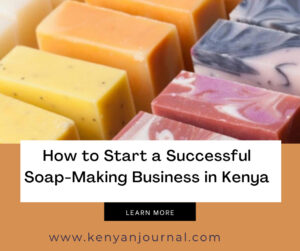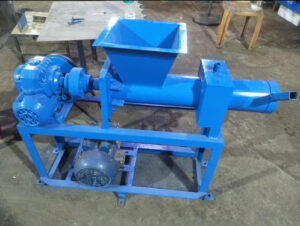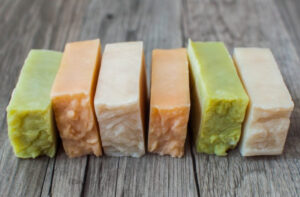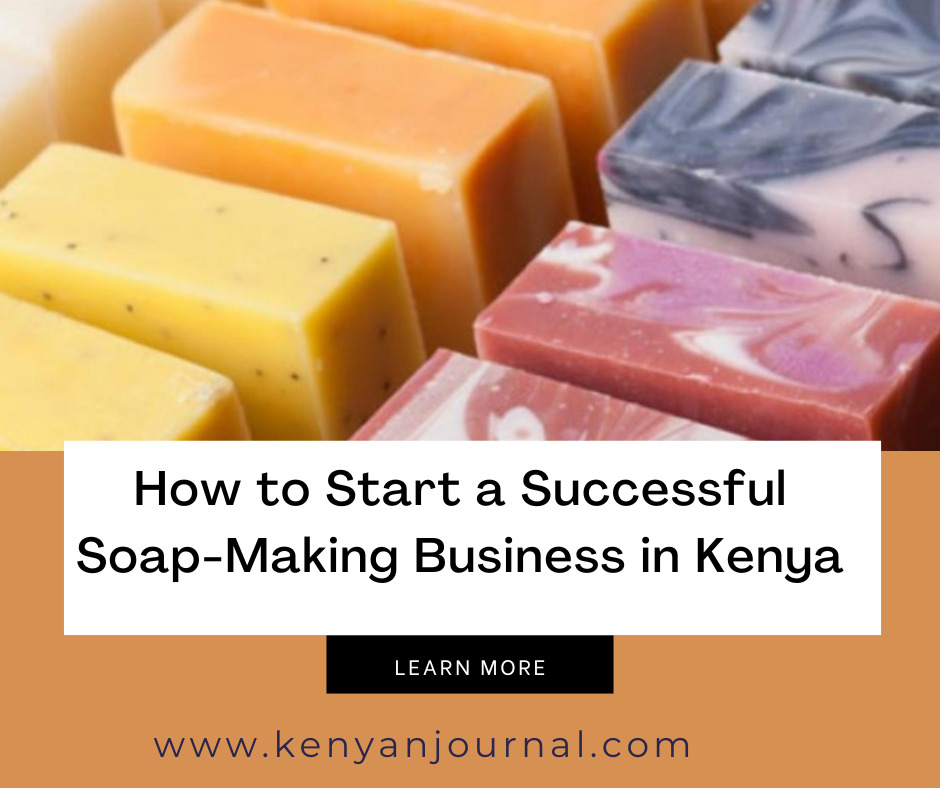Thinking about starting your own soap-making business in Kenya? It’s a pretty cool idea with lots of chances to succeed.
Whether you want to make fancy soap bars or focus on specific groups of people who need special soap, there’s a lot you can do.

Let’s break it down and guide you through the steps to get started on your soap-making adventure and hopefully make it big!
How to Start a Successful Soap-Making Business in Kenya
1. Identify Your Target Customers
Before diving into production, it’s crucial to understand your market and pinpoint your potential customers.
Whether it’s households seeking natural alternatives or establishments like hotels and spas in need of specialty soaps, knowing your audience will guide your product development and marketing strategies.
2. Develop a Niche
Differentiate your brand by specializing in a particular type of soap.
Whether it’s natural, organic, or infused with unique ingredients, carving out a niche will not only set you apart from competitors but also attract customers seeking specific qualities in their soap products.
3. Write a Soap Making Business Plan
Outline your business objectives, target market segments, production processes, marketing strategies, and financial forecasts in a well-thought-out business plan.
This roadmap will serve as your guiding light throughout the journey, helping you stay focused and organized amidst the challenges of entrepreneurship.
4. Register Your Business and Obtain Licenses and Permits
Ensure legal compliance by registering your soap-making business with the relevant government authorities. This step not only establishes your business’s legitimacy but also protects you from potential legal complications down the line.
Additionally, obtain the necessary licenses and permits required to operate your soap-making business legally.
This includes adhering to health and safety regulations to ensure the quality and integrity of your products.
5. Procure Raw Materials
Source high-quality raw materials such as oils, fragrances, lye, and additives to create your signature soap formulations.
Establishing reliable supply chains is essential to maintain consistency in product quality and meet customer demand.
6. Acquire Equipment
Invest in essential equipment and tools like soap plodder machine, mixing bowls, molds, thermometers, and weighing scales to facilitate the soap-making process.
Quality equipment not only streamlines production but also ensures precision and efficiency in your operations.

7. Choose a Suitable Location
Select a production location that offers ample space, easy accessibility, and essential utilities like water and electricity.
Whether it’s a dedicated workshop or a home-based setup, prioritize functionality and convenience to optimize your manufacturing processes.
8. Start Making Soaps
Put your creative skills to work and dive into the soap-making process.
Whether you opt for the cold process or hot process method, meticulous attention to detail and adherence to quality standards is paramount to crafting exceptional soap products.

9. Promote and Market Your Business
Harness the power of local markets, craft fairs, and social media platforms to showcase your unique offerings and connect with potential customers.
Implementing targeted marketing campaigns and offering promotional incentives can help generate buzz and attract initial clientele, laying the foundation for long-term success.
How to Start a Successful Soap-Making Business in Kenya FAQS
Is soap making profitable in Kenya?
Yes, soap-making can be profitable in Kenya, especially with the increasing demand for quality and natural skincare products.
Entrepreneurs can tap into various market segments, including households, hotels, and beauty shops, to generate income from soap sales.
How much does it cost to start a soap-making business?
The cost of starting a soap-making business in Kenya can vary depending on factors such as scale, production methods, and sourcing of raw materials.
Generally, startup costs may include expenses for equipment, raw materials (such as oils, fragrances, and additives), packaging materials, marketing, and licensing.
A rough estimate for starting a small-scale soap-making business could range from Kshs 15,000.
Wrapping up
Remember, building a successful soap-making business in Kenya requires dedication, perseverance, and a dash of creativity.
By following these steps and staying true to your vision, you can turn your passion for soap crafting into a thriving enterprise that leaves a lasting impression in the hearts and homes of your customers.
ALSO READ:
